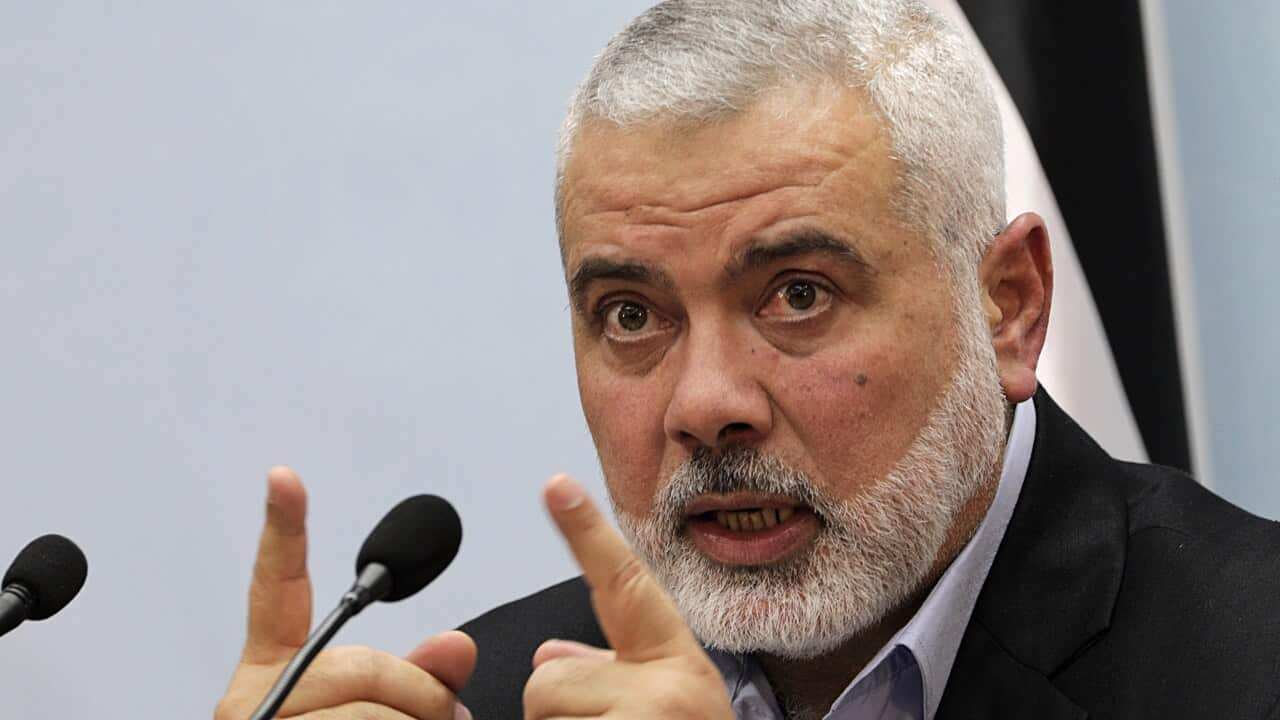Key Points
- Haniyeh, based in Qatar, has been the tough-talking face of Hamas’ international diplomacy during the war in Gaza.
- Three of his sons were killed after the car they were driving in was hit by an Israeli airstrike.
- Israel accuses Haniyeh and other Hamas leaders of continuing to “pull the strings of the Hamas terror organisation”.
An Israeli strike killed three of Hamas chief Ismail Haniyeh’s sons in Gaza on Wednesday, the Palestinian leader and Israel’s military said, as war rages in the Palestinian territory despite ongoing truce negotiations.
The Israeli military confirmed carrying out the attack, describing the three sons as operatives in Hamas’ armed wing.
Haniyeh, based abroad in Qatar, has been the tough-talking face of Hamas’ international diplomacy as war with Israel has raged on in Gaza, where his family home was destroyed in an Israeli airstrike back in November.
The three sons — Hazem, Amir and Mohammad — were killed after the car they were driving in was bombed in al-Shati camp near Gaza City, Hamas said.
Three of Haniyeh’s grandchildren were also killed in the attack and a third was wounded, Hamas media said.
The Israeli military statement did not comment on any other casualties in the airstrike.
“The blood of my sons is not dearer than the blood of our people,” Haniyeh, 61, who has 13 sons and daughters according to Hamas sources, told Al Jazeera TV.
The three sons and three grandchildren were making family visits during the first day of the Muslim Eid al-Fitr holiday in Shati, their home refugee camp in Gaza City, according to relatives.
Hamas said on Tuesday it was studying an Israeli ceasefire proposal in the more than six-month-old Gaza war but that it was “intransigent” and met none of the Palestinian demands.
Israel has bombarded Gaza since Hamas’ 7 October attack in which more than 1,200 people, including an estimated 30 children, were killed and over 200 hostages taken, according to the Israeli government.
More than 33,482 people have been killed in Gaza since 7 October, mostly women and children, according to the health ministry in Gaza.
The 7 October attack was a significant escalation in the long-standing conflict between Israel and Hamas, and the broader Israeli-Palestinian conflict.
“Our demands are clear and specific and we will not make concessions on them. The enemy will be delusional if it thinks that targeting my sons, at the climax of the negotiations and before the movement sends its response, will push Hamas to change its position,” Haniyeh said.
In the seventh month of a war in which Israel’s air and ground offensive has devastated Gaza, Hamas wants an end to Israeli military operations, a withdrawal from the enclave, and permission for displaced Palestinians to return home.
Appointed to the militant group’s top job in 2017, Haniyeh has moved between Turkey and Qatar’s capital Doha, avoiding Israeli-imposed travel restrictions in blockaded Gaza and enabling him to act as a negotiator in the latest ceasefire negotiations or communicate with Hamas’ main ally Iran.
Israel regards the entire Hamas leadership as terrorists, accusing Haniyeh and other leaders of continuing to “pull the strings of the Hamas terror organisation”.
But how much Haniyeh knew about the 7 October cross-border attack on Israel by Gaza-based militants beforehand is not clear.
The attack plan, drawn up by the Hamas military council in Gaza, was such a closely guarded secret that some Hamas officials abroad seemed shocked by its timing and scale.
